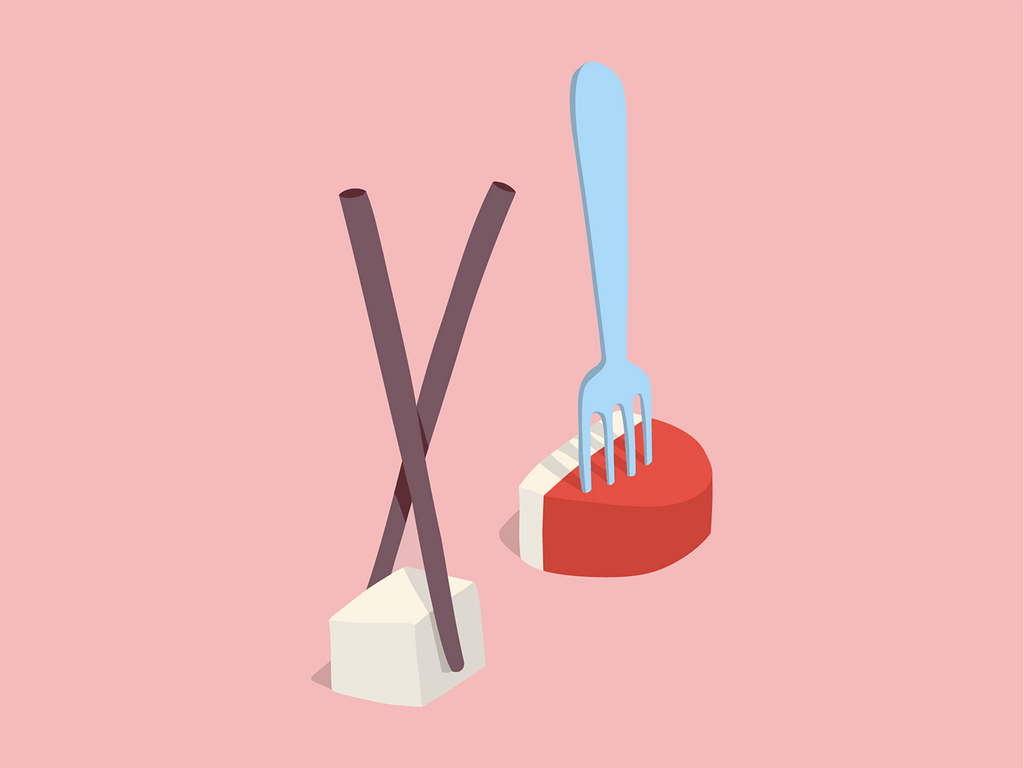What to Eat During the Luteal Phase
- Share this article Copy to clipboard

The luteal phase, following ovulation, is characterized by hormonal shifts and changes within the body. But beyond the biological aspect, what we consume during this time can profoundly influence our well-being. Let's look into the importance of nutrition during the luteal phase, exploring how diet can impact hormonal balance and what foods can support this balance.
importance of nutrition during the luteal phase
What is the luteal phase? This phase of the menstrual cycle typically spans from ovulation to the onset of menstruation, lasting around 10 to 16 days. It marks a significant period in the menstrual cycle where the body prepares for potential pregnancy. Nutrition during this phase becomes paramount as it can influence hormone levels and overall well-being.
nutritional needs during this phase
During the luteal phase, the body's demand for certain nutrients shifts. It is important to focus on foods rich in vitamins and minerals that support hormonal balance and overall health. Key nutrients during this phase include vitamin D, vitamin B6, calcium, magnesium, and zinc. These nutrients play significant roles in hormone regulation and can help alleviate common symptoms associated with this menstrual cycle phase.
how diet can impact hormonal balance
The foods we consume can significantly impact hormonal balance throughout the menstrual cycle. Maintaining stable blood sugar levels during the luteal phase supports hormone production and reduces mood swings and cravings. Incorporating nutrient-dense foods that support hormone balance can help mitigate symptoms and promote overall well-being.
foods to support hormonal balance
Incorporating specific nutrients into your diet is key to supporting hormonal balance during the luteal phase. Here are some foods rich in nutrients that can help support hormone balance during this phase:
vitamin D: Fatty fish, fortified dairy products, eggs, and sunlight exposure
vitamin B6: Chickpeas, salmon, poultry, bananas, and spinach
calcium: Leafy greens, dairy products, tofu, almonds, and fortified plant-based milk
magnesium: Nuts, seeds, whole grains, dark leafy greens, and legumes.
zinc: Oysters, beef, pumpkin seeds, lentils, and fortified cereals.
foods to reduce symptoms
Common symptoms experienced during the luteal phase, such as bloating, mood swings, and fatigue, can be alleviated by incorporating certain foods into your diet. Here are some foods known for their ability to reduce symptoms:
complex carbohydrates: Whole grains, sweet potatoes, quinoa, and oats can help stabilize blood sugar levels and reduce mood swings
healthy fats: Avocado, olive oil, nuts, and seeds provide fatty acids that support hormone production and reduce inflammation
dark chocolate: Rich in antioxidants and magnesium, dark chocolate can help improve mood and reduce cravings
leafy greens: Spinach, kale, and Swiss chard are rich in vitamins and minerals that support overall health and well-being
seed cycling for hormone health
Exploring alternative methods like seed cycling can offer promising benefits in the quest for hormonal balance during the luteal phase. Seed cycling is a holistic approach to hormone health that involves incorporating specific seeds into your diet at different menstrual cycle stages. Let's dive into how seed cycling works, its potential benefits for hormone balance, and how incorporating nutrient-dense foods can further support overall well-being.
understanding seed cycling
Seed cycling revolves around utilizing different seeds during the follicular and luteal phases of the menstrual cycle to support hormone production and balance. During the follicular phase, which precedes ovulation, flax and pumpkin seeds are typically consumed to support estrogen production. Conversely, during the luteal phase, sesame seeds and sunflower seeds are favored to support progesterone production.
potential benefits of seed cycling
While scientific research on seed cycling is limited, anecdotal evidence suggests potential benefits for hormone health. By incorporating specific seeds into your diet at different menstrual cycle stages, you may support hormone production and balance naturally. This can lead to reduced symptoms such as bloating, mood swings, and menstrual cramps during the luteal phase.
supporting hormone health naturally
As you know by now, incorporating nutrient-dense foods like sweet potatoes, cruciferous vegetables, and seeds into your diet can support hormone health naturally during the luteal phase. Focusing on whole, unprocessed foods and avoiding processed foods high in sugar and unhealthy fats can help regulate hormone levels and reduce symptoms associated with hormonal imbalances.
In addition to dietary changes, prioritizing stress management techniques such as mindfulness, yoga, and adequate sleep can further support hormone balance during the luteal phase. By taking a holistic approach to hormone health, you can navigate the menstrual cycle with greater ease and well-being.
Thinx products for comfort
During the luteal phase, comfort is key. Thinx offers a range of period underwear and bladder leak underwear designed to provide support and confidence throughout your menstrual cycle. By incorporating Thinx into your routine, you can experience comfort and convenience without sacrificing style or performance.
As you've learned, nutrition is crucial during this phase for promoting hormonal balance and overall well-being. Focus on nutrient-rich foods and listen to your body's needs. At Thinx, we aim to educate and spark conversations about menstrual health, and we hope you now feel more equipped to navigate this phase with ease and confidence.
sources
London Clinic of Nutrition. Foods to Eat for Each Stage of Your Menstrual Cycle. https://londonclinicofnutrition.co.uk/nutrition-articles/foods-to-eat-for-each-stage-of-your-menstrual-cycle/
Forbes. What to Eat During Each Stage of Your Menstrual Cycle. https://www.forbes.com/health/womens-health/what-to-eat-during-menstrual-cycle-phases/
Cleveland Clinic. Nutrition and Exercise Throughout Your Menstrual Cycle. https://health.clevelandclinic.org/nutrition-and-exercise-throughout-your-menstrual-cycle


